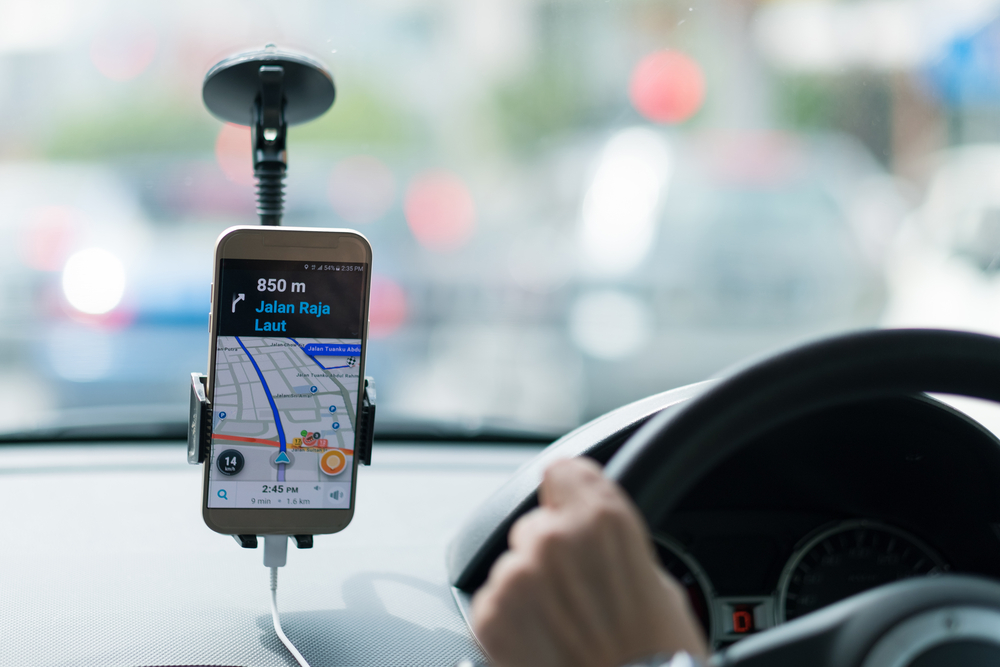Yee-haw, looks like we’ve got ourselves a good old-fashioned math battle.
Over the weekend, Uber CEO Dara Khosrowshahi said MIT stood for “Mathematically Incompetent Theories” after a new working paper from the university’s Center for Energy and Environmental Policy Research estimated that Uber and Lyft drivers earn $3.37 an hour after expenses. The company says the actual average hourly wage is closer to $15.68, based on data compiled by blogger and ride-hailing driver The Rideshare Guy. After some back-and-forth, both parties agreed that three poorly phrased questions were at the heart of the mishap.
Videos by VICE
The lead author on the paper, Stephen Zoepf, tweeted a statement on Monday saying he would work with Uber chief economist Jonathan Hall to sort this mess out. “This is exactly why we publish working drafts: to solicit constructive feedback and improve our work,” he wrote.
Read More: How Uber Profits Even While Its Drivers Aren’t Earning Money
He also said a quick recrunching of numbers, using Hall’s advice and two different methodologies, put drivers’ median wages between $8.55–$10 an hour. It’s better than $3.37 an hour, but still nowhere close to what Uber says drivers earn.
The Rideshare Guy himself, Harry Campbell, told Motherboard in an email that the expenses portion of the MIT working paper was “extremely accurate” but had been overshadowed by the initially low earnings figure. “The revised MIT earnings figures of $9–$10 per hour profit seem more in line with my survey findings over the years and experience,” he explained. (He also wrote an excellent blog post on the debacle.)
If you ask drivers, though, none of these figures seem entirely correct.
On an Uber drivers community on Reddit, some agreed that wages are extremely low, while others said they can earn upwards of $30 an hour. Here’s a sampling of the argument:

There’s no agreement among academics, either. Yale economics and finance professor Judith Chevalier tweeted that her findings put Uber wages “in the upper teens,” while Princeton economics professor Alan Krueger noted that it was MIT’s methodology that yielded “implausibly low gross earnings.”
This debate appears to hinge on the actual cost of driving a car—that is, gas, insurance, taxes, wear and tear, repairs, depreciation, cleaning, special licensing, and so on. All of these are subjective costs depending on a particular driver’s location, qualifications, hours worked, and driving style.
Read more: Uber will pay $20 million to settle with FTC after promising drivers unrealistic earnings
As well, Uber pricing is not consistent across all cities; a five-mile drive in Montreal would never cost the same as a five-mile drive in Los Angeles. That’s because of congestion, road conditions, traffic lights, and different regional regulations that can dictate some elements of pricing. Ultimately, though, it comes down to how diligent drivers are about counting their expenses—and there’s no accounting for people who are simply bad at math.
I asked a mathematician at a prestigious American university to help me determine which analysis was more accurate, but he declined my request because of concerns he’d get ripped a new one. Fair.
But one thing I keep circling back to is that the MIT paper used a median wage, while Uber is relying on an average wage. Because of the vast range of factors impacting earnings, it seems unfair to include abnormally high or low wages. In this particular case, a median seems like the most judicious way of determining the wage most Uber and Lyft drivers earn.
Zoepf didn’t return my emails asking for comment, but Uber did. A company spokesperson wrote: “We thank Professor Zoepf for acknowledging a major flaw in his methodology and support his decision to conduct a thorough revision of the paper over the coming weeks.” The company intends to study Zoepf’s new findings when they’re available.
Zoepf vowed in a public reply to revisit his findings in the weeks to come, and urged Uber to be more transparent and collaborative in sharing its data.
Get six of our favorite Motherboard stories every day by signing up for our newsletter .
More
From VICE
-

Constantine Johnny/Getty Images -

(Photo by Elsa / Getty Images) -

Screenshot: Ubisoft -

(Photo by Ebet Roberts / Redferns; David Jon / Getty Images for HBO)
